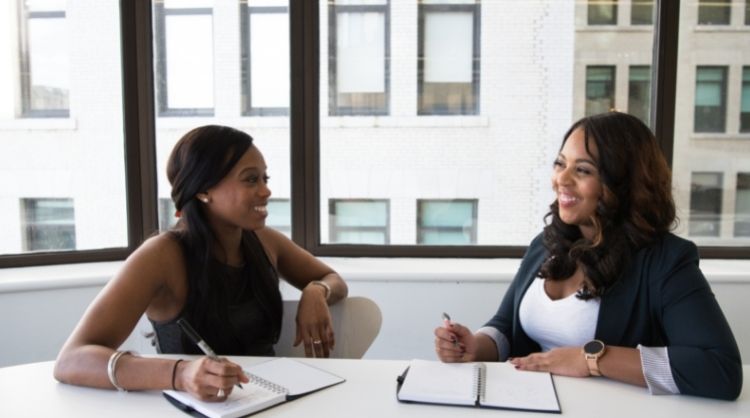How to talk about your weaknesses in a job interview

Job interviews can be super nerve-wracking. That’s why it’s important to be prepared for all sorts of questions. A common one that always tends to pop up is: “What are some of your weaknesses?”
But how do you talk about this without self-sabotaging your interview? We’ll give you some handy tips and tricks on how to talk about your weaknesses and prepare for your next job interview.
How to prepare for a job interview
- Do a mock interview.
- Research the company.
- Keep your body language in mind.
- Be prepared for anything.
Here are some things you can do to help you feel confident for an interview:
1. Do a mock interview.
Ask a friend or family member to help you by simulating an interview. Many interviewers tend to ask the same questions, so it’s a good idea to have some answers prepared. Some of the most commonly asked questions include:
- Why do you want to work with us?
- What are your biggest strengths/weaknesses?
- Tell us a bit about your previous experience.
- Where do you see yourself in five years?
2. Research the company.

It’s also good to thoroughly read the job description provided to you. See if you can match your current skills with any of the tasks in the position description. This will help you confidently discuss your skill set when asked during your interview. Reading the job description will also give you a better idea of what the job entails, allowing you to ask your interviewer questions.
3. Keep your body language in mind.
Do you fidget when you’re nervous? It’s important to think about your body language during an interview. If you have a mock interview, ask your interviewer if they noticed if you were slouching, fidgety or not making eye contact.
It also helps to sit in front of a mirror and practice how you will move your hands when you talk, as well as find a comfortable sitting position.
4. Be prepared for anything.
Anything can happen in COVID times – your interviewer may ask to do a virtual or phone interview with you. This means that you need to be extra prepared - make sure that you have a reliable source of WIFI or are in an area with good reception. A tidy, private, and quiet area is an ideal place for your interview.
How to talk about your weaknesses in a job interview

- Don’t leave it hanging: Don’t just say what your weaknesses are, make sure you follow up. For example, you can say that you don’t have much leadership experience but want to gain more skills in it.
- Don’t lie: Be transparent with your interviewer. Don’t just say something because you think it’s what the interviewer wants to hear. By telling your interviewer that you are working on improving your skills, you are showing that you are honest (and human).
- Tell a story: Rather than just straight up say what your weaknesses are, elaborate on what they mean to you. You can talk about a scenario where you made a mistake but amended the issue. You can also discuss a time you thought you were not good at a certain skill but surprised yourself.
Some common weaknesses that people bring up in interviews include:
- Verbal or written communication
- Leadership
- Too much/little attention to detail
- Lack of ability to use a software or program (e.g. Microsoft suite, Adobe Creative Cloud)
- Analysing data
How to follow up after a job interview
Most of the time, after an interview, a company will contact you with an outcome. If you don’t receive one, it’s always good to follow up.
Here are some tips for crafting up a follow up email for your interviewer:
- Keep an approachable and friendly tone to your email – try and not come across as impatient or frustrated.
- Be sure to include your full name, the role you were going for and the date/time you interviewed. You can also include your interviewer’s name, if you are not emailing them directly.
- Reiterate your interest in the job role.
- Check your email for spelling or grammatical errors.
- End your email with a ‘thank you’.
- If you want, ask for feedback – sometimes interviewers are happy to speak to you about how you went.
Remember, it may take a couple of weeks for interviewers to get back to you, so be patient and try not to follow up immediately after the interview.
Studying relevant qualifications can help you feel more job ready and address any skill gaps you may have. At Upskilled, we have online courses covering a range of subjects such as business, IT and community services. Our courses can be studied flexibility alongside a job. Check out what’s on offer today!


)
)

